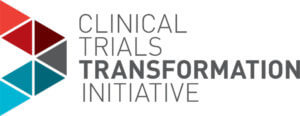Through projects such as ADAPTABLE, CTTI, and the NIH Collaboratory, the DCRI is defining how to use RWE in clinical research.
From electronic health records to insurance claims, patient registries, and mobile devices, modern technology has ushered in a wealth of real world data (RWD) that can complement traditional randomized clinical trials to help researchers understand more about a drug or treatment. Until recently, however, there was little agreement on how to transform this data into solid evidence that can guide patients to better decisions.
In late 2018, the U.S. Food and Drug Administration (FDA) released a new Framework for Real-World Evidence (RWE). The document, which establishes a definitive roadmap for FDA’s development of standards for the use of RWD and RWE, is a product of insights gleaned from some of the nation’s most respected trailblazers in advancing the generation and use of RWE, including the DCRI.
Specifically, the Framework outlines various areas in which FDA will evaluate the use of RWD and RWE; FDA’s plan for evaluating how RWD can be incorporated into study designs and the regulatory considerations for such use of RWD; and FDA’s plan for developing guidance in a number of key areas, including on data standards and additional sources of RWD to help address current gaps in the capture of key information.
DCRI researchers’ contributions to this Framework build on a strong tradition of leadership in advancing the use of RWE. For example, the DCRI’s Adrian Hernandez, MD, MHS, participated in a 2016 Bipartisan Policy Center roundtable, which focused on advancing the use of RWE and served as an opportunity for the DCRI to share its perspective on how the right policy pathways are critical to shaping the future of real-world medicine.
Leading by example
The DCRI’s work to advance the use of RWE continues today. Through several innovative programs, the DCRI continues to spearhead new and better ways of bringing RWE to the fore of research that will inform future regulatory policy.
As highlighted in the FDA’s framework document as a case example, the ADAPTABLE (Aspirin Dosing: A Patient-centric Trial Assessing Benefits and Long-Term Effectiveness) Study is a patient-centered, pragmatic clinical trial assessing two different daily doses of aspirin to evaluate which dose is more effective for patients living with cardiovascular disease.
The DCRI is the Coordinating Center for ADAPTABLE, which is funded through a Patient-Centered Outcomes Research Institute (PCORI) award and is conducted through PCORnet– the National Patient-Centered Clinical Research Network.
Forty healthcare systems and three health plans use electronic health records (EHRs) and health insurance information to identify potential study participants. Effectively using EHRs as a recruitment strategy requires transparency and communication with clinicians.
“Finding ways to make research more practical is what ADAPTABLE and pragmatic clinical research is all about,” said ADAPTABLE principal investigator Schuyler Jones, MD. “ADAPTABLE integrates conversations about participation into the clinical work flow, helping both clinicians and patients become more aware of the research question, and better understand if participation is the right choice for that individual patient.”
It takes a team approach to establishing best practices for leveraging electronic health records, engaging patients as partners, and overcoming regulatory hurdles. The ADAPTABLE team consists of patient partners, clinicians, and researchers who regularly discuss study progress, challenges, and success. Team members frequently share lessons learned and insights within the ADAPTABLE community and beyond as they continue to set the bar and put in place measures to innovate clinical research.
The DCRI also serves as the Coordinating Center for the National Institutes of Health Health Care Systems Research Collaboratory (NIH Collaboratory), helping to realize the program’s mission to strengthen the national capacity to implement cost-effective large-scale research studies that engage healthcare delivery organizations as research partners. Led by DCRI’s Lesley Curtis, PhD, Adrian Hernandez, MD, MHS, and Kevin Weinfurt, PhD, the Coordinating Center supports and learns from innovative pragmatic trials to advance the field.

“Through the NIH Collaboratory program, we are discovering the best ways to embed research in everyday clinical care,” said DCRI’s Tammy Reece, MS, project director for the Coordinating Center. “Everything we learn is fed back to the research community to shape how the next generation of clinical trials will be conducted.”
One example is the Pragmatic Trial of Higher vs. Lower Serum Phosphate Targets in Patients Undergoing Hemodialysis (HiLo), led by the DCRI’s Myles Wolf, MD, MMSc. HiLo is testing the effects of different levels of phosphate control for patients with end-stage renal disease under real-world conditions. This clinically important question will be answered through partnership with dialysis organizations and their providers.

Another DCRI-affiliated project, the Clinical Trials Transformation Initiative (CTTI), is working on a collaborative project with the FDA, industry, patients, and other stakeholders to advance the use of RWD—which is also used and analyzed to create RWE—in planning for regulatory submission trials. As part of this work, CTTI is developing recommendations and supporting resources for using data from electronic health records (EHR) and insurance claims to evaluate trial eligibility criteria and recruit potential research participants. The work is based on in-depth interviews and meetings with representatives from academia, biopharmaceutical companies, health systems, and other organizations to identify challenges and opportunities for incorporating RWE in regulatory submission trials.
“RWD is a potentially powerful tool for enhancing the quality and efficiency of clinical trials,” said CTTI Executive Director Pamela Tenaerts, MD, MBA. “Clarifying the best approaches for incorporating RWD into clinical trials can accelerate recruitment and completion of these trials and lead to substantial benefits for all stakeholders in the clinical trials enterprise, including sponsors, sites, and participants.”
The next era of research
Each of these DCRI projects is laying the groundwork for something bigger: a new era of drug development that seamlessly employs RWD and RWE to bring patients meaningful insights at less cost and greater speed than ever before.
As entities like the FDA continue mapping the right ways to enhance modern drug development with real world insights, it will be looking to the outcome of these DCRI efforts to guide its trajectory.